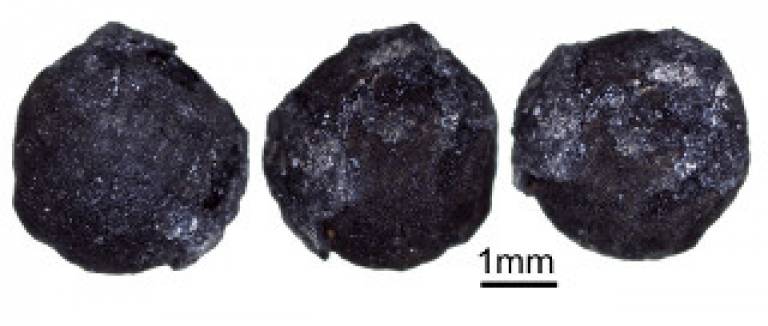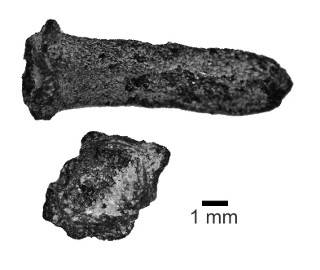Earliest discovery of clove and pepper from ancient south Asia
13 December 2018
Collaborative research, involving UCL Institute of Archaeology researchers, has discovered the first empirical evidence of cloves and black pepper to be found in Sri Lanka, suggesting that exotic spice trade in the region dates back to as early as 600 AD.

Sri Lanka has been at the centre of the spice trade for millennia and is today one of the biggest suppliers of clove to Europe, where it has become synonymous with Christmas and winter treats such as mulled wine.

Now published in Antiquity, the collaborative research team discovered one rare sample of clove dating back to 900-1100 AD and eight samples of charred black pepper dating back to 600-700 AD. They were discovered at the site of an ancient port in Mantai, Sri Lanka. Lying on the north-west coast of Sri Lanka, Mantai was ideally situated as a hub for trade between East and West from the first millennium BC onwards.
Excavations at the site were interrupted by civil war in 1984, delaying publication of these results. Renewed excavations in 2009-2010, by a Sri Lankan-UK team as part of the ERC-funded SEALINKS project led by Nicole Boivin (Max Planck Institute of the Science of Human History, Germany), yielded extensive archaeobotanical remains. Charred remains were collected and samples dried on site and packed into sealed plastic bags before being exported to the UCL Institute of Archaeology for analysis.
According to lead author, Eleanor Kingwell-Banham:
- "The clove predates most other finds of cloves from outside South Asia by around 500 years. There are only two other reports of clove in the world, including one from Syria which dates back to around 2,000 BC, but these have not been properly dated or recorded and the cloves, if there actually were any, have since been lost. So this discovery of clove in Sri Lanka is the earliest well dated and scientifically catalogued clove in the world. The black pepper is also quite a rare discovery for such an early period. However, we do have several earlier finds, for example from Pompeii and Herculaneum c.79 AD. There are also reports of pepper in the tomb of Rameses II, the third king of the 19th dynasty of Egypt, who died in 1213 BC and had two grains placed in his nostrils."
Clove is native to the Maluku Islands in Indonesia where it has grown for thousands of years, without needing to be planted by people. The first clove tree was planted around the 16-17th century during the spice trade wars when the Dutch East India Company wanted a monopoly on the clove crop.
Eleanor added:
- "The clove from Mantai would have been grown and harvested in the Maluku Islands, Indonesia, where it originated, then packed and shipped to Mantai possibly via Southeast Asia for trade onwards to any one of the regions that Sri Lanka traded with at that time - be it the Roman Empire, India or Arabia. Clove is mentioned in the ancient texts of India, c.800 AD and was known as the 'divine flower'. It was also associated with the Hindu goddess Lakshmi who symbolised beauty, wealth and fortune, so it really was a very luxurious product at the time."
The new evidence, which also included remains of processed wheat grains dating to 100-200 AD and grape seeds dating to 650-800 AD that could link the port city to the ancient Mediterranean world, appears to suggest that ancient Mantai was a multi-cultural and dynamic settlement and an important site in the development of Early Historic Indian Ocean trade.
Research was also funded by NERC.
 Close
Close

